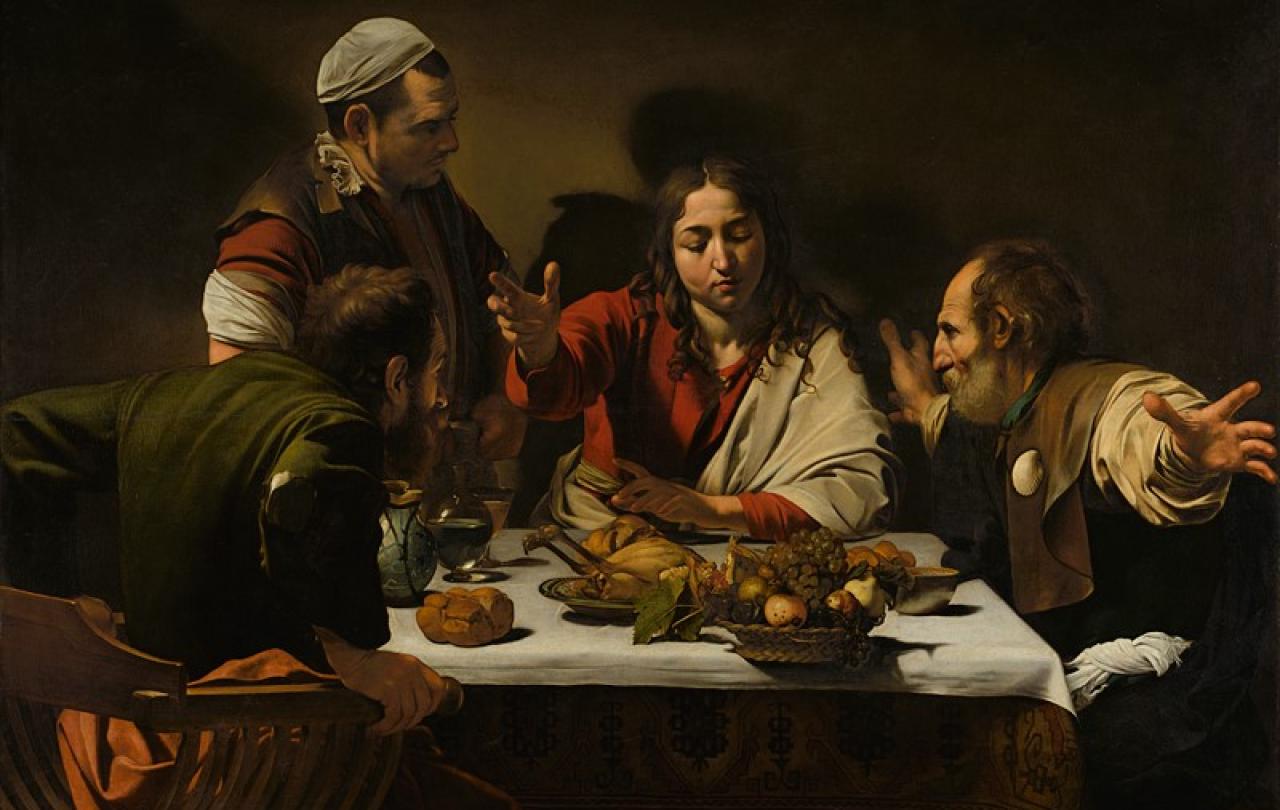
Recently I wrote about how it would be helpful for those of us in the church to be honest about what we don't know.
Mary Oliver wrote:
'Truly, we live with mysteries too marvellous
to be understood…
Let me keep my distance, always, from those
who think they have the answers.
Let me keep company always with those who say
"Look!" and laugh in astonishment,
and bow their heads.'
We begin life by thinking we know everything, and we end it by thinking we know nothing at all, or, very little. Easter confronts us with what we don't know, and what is too marvellous to be understood comprehensively. Sure, the evidence for the resurrection of Jesus is surprisingly staggering. Take Francis Collins, who was Director of the Human Genome project and led the US government's COVID-19 pandemic. He said that he grew up thinking faith was the result of emotionalism or indoctrination. Although his job was saturated in evidence-proving hypotheses, he hadn't taken the trouble to look at the evidence in arriving at his conclusion that God didn't exist, before doing so and giving his life to Christ.
But even when you've surveyed the wondrous cross and its aftermath, the implications of Easter are unscientific and unsettling, as well as documented and liberating. Try as we might, we can't pin down Jesus. Rowan Williams offers that:
"One of the strangest features of the resurrection narratives is precisely this theme of otherness, the unrecognisability of the risen Jesus… For some at least, the encounter with the risen Jesus began as an encounter with a stranger".
We see this as Mary Magdalene mistakes Jesus for the gardener at the tomb, and similarly with those on the road to Emmaus on the day of the resurrection. They had known Jesus up close, and yet here they travelled quite some way with him before realising it was him.
This is most beautifully depicted by Caravaggio in his 'The Supper at Emmaus', hanging in the National Gallery in London. As Jesus breaks the bread, their eyes are opened to see what the breaking of his body meant for them. Jesus was hidden in plain sight all along. With the echoes of Christendom, or the Christ-haunted cultures many of us live in, Jesus is hidden in plain sight for us too. We hear echoes, but do not hear his voice. We see fingerprints, but do not see the scarred hands of the Almighty. And in the renaissance master's painting, we see dramatic light and shade, the freeze-frame burst of astonishment of the disciples. As the National Gallery description offers,
'he has shown the disciples as ordinary working men, with bearded, lined faces and ragged clothes, in contrast to the youthful beardless Christ, who seems to have come from a different world.’
Amidst the mystery, this revelation comes in relation to us. And this is what Caravaggio depicts: that which we find difficult to understand is the joy of a risen saviour who chooses to walk, talk, eat with fellow humans on the day of his resurrection. But, as Williams writes,
'He eludes and questions our predictions and projections, recedes and hides before our attempts to arrive at adequate, definitive statements... A theology of the risen Jesus will always be, to a greater or lesser extent, a negative theology, obliged to confess its conceptual and imaginative poverty.'
Perhaps Caravaggio's imagination is less impoverished than most of us!
Intriguingly, Williams has also written a poem about how the resurrection changes the way those on the road to Emmaus viewed each other. Maybe the anonymity of one of them (the gospel writer, Luke, only names one) helps us to place ourselves in the middle of this mystery. And that is a good place to find ourselves, if we answer the invitation of the risen Jesus and the God who spoke to a captive people through the prophet Jeremiah
'Call to me, and I will answer you and tell you great and unsearchable things you do not know.’
For the disciples, the penny drops, but there is still so much they don't know. This is not to say that they know nothing. Jesus is, in many ways, what Donald Rumsfeld would categorise as a 'known unknown'. Christians believe that Jesus revealed himself in the scriptures, but enough for us to know that there's a lot more to know that we don't know. For those with Christian faith, we don’t exchange the certainty of what we know for mystery, but one of the invitations of the resurrection is to incorporate mystery into faith. And this in itself is not difficult: for to encounter Jesus is to be met with wonder. Those on the road to Emmaus didn’t recognise Jesus at first but their hearts burned within them. For John Wesley, his 'heart was strangely warmed', which strikes me as a very British way of saying his heart was burning within him!
But many of us will attest that to encounter the risen to Jesus is to shout 'look!' and laugh in astonishment, and to bow our heads.
Celebrate our 2nd birthday!
Since Spring 2023, our readers have enjoyed over 1,000 articles. All for free.
This is made possible through the generosity of our amazing community of supporters.
If you enjoy Seen & Unseen, would you consider making a gift towards our work?
Do so by joining Behind The Seen. Alongside other benefits, you’ll receive an extra fortnightly email from me sharing my reading and reflections on the ideas that are shaping our times.
Graham Tomlin
Editor-in-Chief





